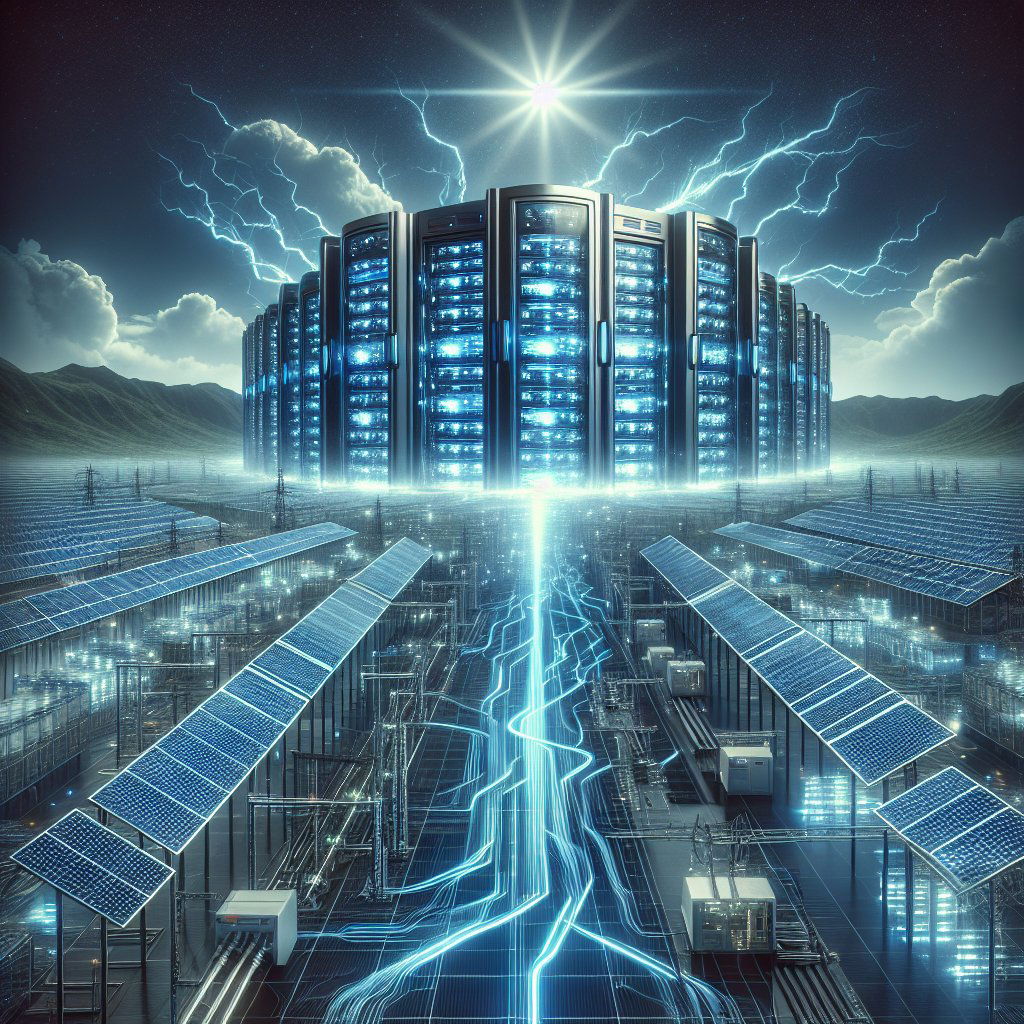Image created by AI
South Africa's Data Centers: Powerhouses of the Digital Economy and Sustainability Challenges
South Africa stands at the forefront of the digital revolution, with its data centers acting as the backbone of this transformation. The country’s data centers, which are pivotal in hosting and managing vast amounts of digital information, have come under the spotlight for their substantial energy consumption. These facilities, with the infrastructure to provide services to various sectors, consume enough electricity daily that could power approximately 2.9 million South African homes.
According to a recent Mordor Intelligence report, South Africa's data center market is currently valued at R8.6 billion and is projected to more than double by 2029 to reach R20.2 billion. With a total critical IT load of 434.86 megawatts across 31 data centers, these infrastructures consume a staggering amount of power, which becomes evident when considering the additional energy required for cooling systems.
Teraco, a leader in data center solutions in the country, equates the ratio of IT load to cooling at their facilities as 1:1, demonstrating the significant resources necessary to maintain optimal operating temperatures for servers around the clock. The total power requirement, therefore, doubles to 869.72 megawatts, leading to a daily consumption of 20,873 megawatt-hours.
In response to this considerable energy demand, data center providers in South Africa are adopting more sustainable energy sources. Notably, Teraco is developing a 120-megawatt solar plant, which underscores the trend toward renewable energy adoption—a shift driven by both Eskom's power delivery instability and the push from governmental policies advocating for reduced reliance on the national power grid.
The Department of Communications and Digital Technologies (DCDT) has released policies aimed at urging a more sustainable practice among data center operators. These include sourcing alternative power and water supplies to mitigate service interruptions and ease the strain on national resources.
Furthermore, the DCDT mandates data center operators to focus on securing their energy and water requirements, potentially through incentives to promote conservation. The policy outlines strict operational and locational guidelines to preserve environmental and heritage sites, avoid high-risk areas, and maintain high uptime standards, especially for government-used data centers.
The digital economy's growth, paired with the thrust towards sustainability, positions the South African data center market at an intriguing crossroads. As these data powerhouses evolve, they bear the dual responsibility of driving technological prowess and leading in eco-friendly initiatives, shaping the country's digital and environmental future.










